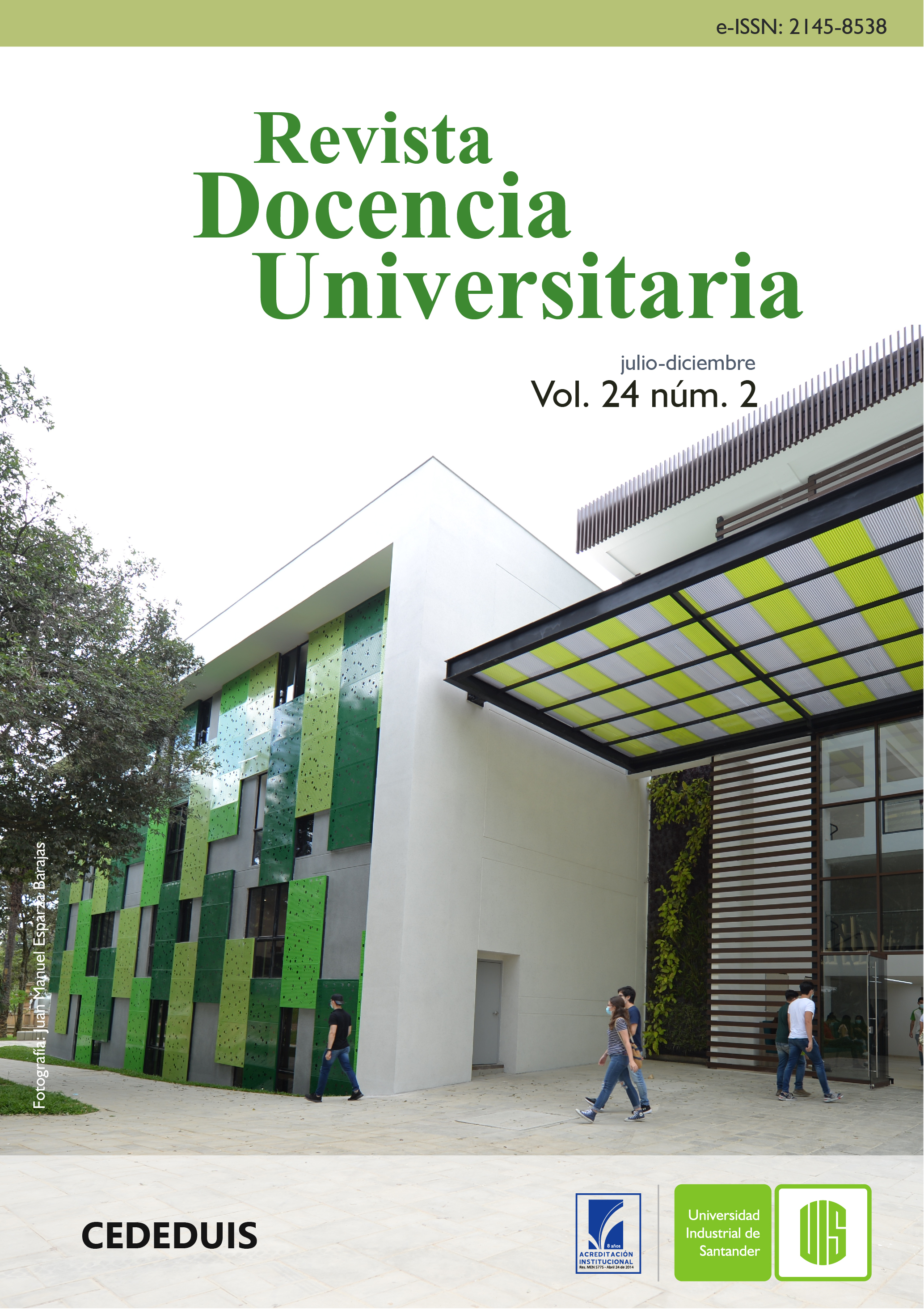Published 2023-07-31
Keywords
- adaptive learning,
- mathematics,
- technology,
- education,
- academic performance
How to Cite
Copyright (c) 2023 Revista Docencia Universitaria

This work is licensed under a Creative Commons Attribution 4.0 International License.
Abstract
Adaptive Learning is a concept that is not really new, but has recently become very relevant, especially due to the impulse that current technological tools have given it. Several authors have concluded that there is a difficulty in learning mathematics, highlighting that the results conclude that it is a difficult subject for most students. In Colombia, this difficulty is demonstrated in the results of the last fifth grade Saber Tests, where it is evident that 93% of the students are at a level between Insufficient and Minimal in Mathematics competencies. Consequently, using a quantitative research methodology, the academic performance of 51 students under study is analyzed; likewise, the results are analyzed from correlation and regression, which gave as a result that the implementation of an adaptive learning methodology improves the academic performance of students in terms of Geometric-Metric Thinking. Finally, to conclude that there is a causal relationship between the independent variable and the dependent variable, since the more the Adaptive Learning Platform is used and worked on, the more the academic results are affected (increase).
Downloads
References
- Calderero, F., Aguirre M., Castellanos A., Peris M., & Perochena P. (2014). New approach to the personalized education and its relationship with the ict. Education in the knowledge society, 15(2), 131-151.
- Comas, Z., Echeverri, I., Zamora, R., Vélez, J., Sarmiento, R., & Orellana, M. (2017). Tendencias recientes de la Educación Virtual y su fuerte conexión con los Entornos Inmersivos. Espacios 38(15), 4-18.
- Delgue, J. (2018). América Latina: el impacto de las tecnologías en el empleo y las reformas laborales. Revista Internacional y Comparada de relaciones laborales y derecho del empleo, 6(1), 6-36.
- Estrada, A. (2018). Estilos de aprendizaje y rendimiento académico. Revista Boletín Redipe, 7(7), 218-228.
- García, M., Fernández, R., Solano, N., & Gómez, A. (2020). Las creencias de los futuros maestros sobre la enseñanza y aprendizaje de las matemáticas. Espacios, 41(9), 14.
- Hernández, R., Fernández, C. & Baptista, P. (2014). Metodología de la Investigación. Editorial Mc Graw Hill
- Johnson, L., Adams, S., & Cummins, M. (2012). The NMC Horizon Report: 2012. The New Media Consortium.
- Martínez, S. & Ramos, L (2016). Construcción de metodologías comparativas e indicadores para medir el uso de TIC y sus impactos en el salón de clase. Fedesarrollo. 57
- Miliband, D. (2006). “Choice and Voice in Personalised Learning”. En Personalising Education (pp. 21-30). OECD. http://dx.doi. org/10.1787/9789264036604-2-en
- Ministerio de Educación Nacional de Colombia (2016). Derechos Básicos de Aprendizaje V2. República de Colombia.
- Ministerio de Educación Nacional de Colombia (2017). Mallas de Aprendizaje – Matemáticas de Grado 5°. República de Colombia.
- Ministerio de Educación Nacional (2015). Informe Nacional de resultados Colombia en PISA 2015. Bogotá
- Ministerio de Educación Nacional (2018). Resultados Pruebas Nacionales Saber 3º, 5º y 9º. Colombia
- Vesga, G., & Losada, M. (2018). Epistemological Beliefs of Pre-Service and In-Service Math Teachers, Their Teaching and Learning. Revista Colombiana de Educación (74), 243-267.
- Vila, A., Sedano, M., López, A., & Juan, A. (2004). Correlación lineal y análisis de regresión. Universitat Oberta Catalunya.
- Wagner, D. (2005). Monitoring and Evaluation of ICT in Education Projects: a handbook for developing countries. http://documents.worldbank.org/curated/en/708561468175470484/pdf/375220ICT1Education01PUBLIC1.pdf
